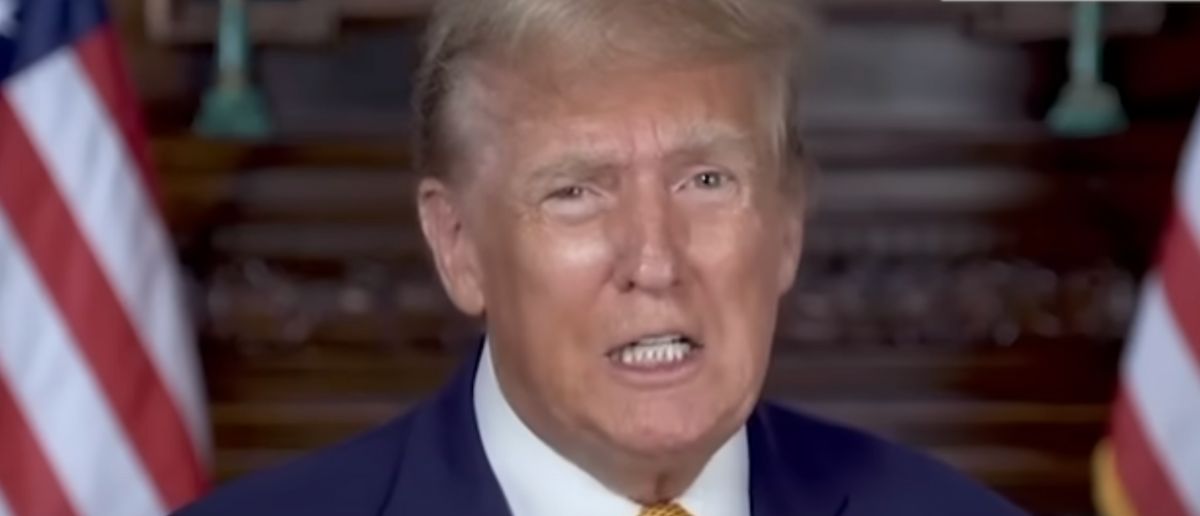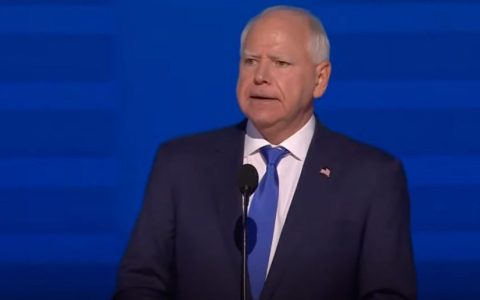
The rules in Congress are being rewritten. The old ways of the D.C. Swamp are gone.
And now a U.S. Senator has backstabbed Donald Trump with inexplicable rogue decision.
Trump Criticizes Hawley Over Congressional Stock Trading Ban Vote
Former President Donald Trump publicly criticized Missouri Republican Senator Josh Hawley on Wednesday for siding with Democrats to block a proposal that would have initiated a government review of former House Speaker Nancy Pelosi’s stock trading activities. The measure, put forward by Florida Republican Senator Rick Scott, sought to examine the stock trading history of Pelosi and her husband, Paul Pelosi, over the past 25 years.
Hawley’s decision came during discussions on a proposed bill to restrict stock trading by members of Congress, which would also limit the president’s ability to engage in stock market transactions. Trump expressed frustration with Hawley’s vote against including the Pelosi review as an amendment to the legislation, accusing him of aligning with Democrats to advance the trading ban.
“Why would one ‘Republican,’ Senator Josh Hawley from the Great State of Missouri, join with all of the Democrats to block a Review, sponsored by Senator Rick Scott, and with the support of almost all other Republicans, of Nancy Pelosi’s Stock Trading over the last 25 years,” Trump posted on Truth Social. “The Democrats, because of our tremendous ACHIEVEMENTS and SUCCESS, have been trying to ‘Target’ me for a long period of time, and they’re using Josh Hawley, who I got elected TWICE, as a pawn to help them.”
During a press conference with the Daily Caller, Trump initially indicated tentative support for the stock trading ban but emphasized he needed to review its specifics. He also reiterated his call for an investigation into Pelosi’s trading activities, citing her consistently high returns.
“I don’t know about it, but I like it conceptually,” Trump stated. “But I study these things very carefully, and this just happened. So, I’ll take a look at it. But conceptually I like it and what I do think is that Nancy Pelosi should be investigated because she has the highest return of anybody, practically, in the history of Wall Street. Save a few and how did that happen? It happened by she knows exactly what’s gonna happen, she buys stock and then the stock goes up after the announcement is made. And she ought to be investigated.”
Pelosi swiftly voiced support for the stock trading ban following Trump’s remarks. In response, Trump suggested her enthusiasm indicated flaws in the legislation, writing on Truth Social, “I wonder why Hawley would pass a Bill that Nancy Pelosi is in absolute love with — He is playing right into the dirty hands of the Democrats. It’s a great Bill for her, and her ‘husband,’ but so bad for our Country!”
Hawley defended his position, expressing willingness to adjust the bill to gain Trump’s approval. “I want the president to sign the bill, so I’m happy to do whatever it would take to get him to say, ‘Yes, this is good. I want to sign it,’” Hawley told reporters. “If the president says, you know, I’m not comfortable with it as it’s written — I mean, we’re gonna have to change it. So I’m happy to do that.”
Senator Rick Scott, who opposed the trading ban, argued it unfairly restricted the president’s authority and could be weaponized by Democrats to target Trump. “This bill is just an attack on the president. It allows the Democrats to attack him after President Trump has gone through Russiagate, special investigator, impeachments, and indictments,” Scott told the Daily Caller News Foundation. “And this is just going to be another way where the Democrats can go after the president.”
Hawley, known for his populist stance, often diverges from Republican colleagues on economic issues. On Tuesday, he introduced a separate proposal for a $600 tariff rebate for most Americans and their dependents, which garnered little support from fellow Republicans.
Why Americans Demand Stricter Regulations on Congressional Stock Trading
Public concern over insider trading by Washington, D.C., officials has grown significantly, driven by perceptions that elected officials may exploit privileged information for personal financial gain. Polls consistently show widespread support among Americans for stricter regulations to curb stock trading by members of Congress, reflecting a broader demand for transparency and accountability in government.
A 2022 survey by the University of Maryland’s Program for Public Consultation found that 86% of Americans, across party lines, support banning members of Congress from trading individual stocks. This sentiment stems from high-profile cases where lawmakers’ trading activities appeared suspiciously timed with legislative or regulatory developments. For instance, reports of unusually profitable trades by some congressional members during the early stages of the COVID-19 pandemic fueled public outrage, as these trades coincided with private briefings on the virus’s potential impact.
The core issue lies in the access elected officials have to nonpublic information, which can influence market outcomes. Lawmakers often participate in closed-door briefings or oversee legislation that affects specific industries, giving them insights unavailable to the average investor. Critics argue this creates an uneven playing field, undermining public trust in government institutions. The 2012 STOCK Act, intended to address insider trading by Congress, requires disclosure of trades but lacks robust enforcement mechanisms, leaving loopholes that many believe allow questionable practices to persist.
Public advocacy groups, such as Public Citizen, have pushed for reforms like mandatory blind trusts or outright bans on stock trading for lawmakers. These proposals aim to eliminate conflicts of interest by ensuring officials cannot directly benefit from their legislative roles. A 2023 Pew Research Center poll revealed that 68% of Americans believe elected officials prioritize personal financial gain over public interest, further driving calls for reform.
Opponents of stricter regulations argue that such measures could deter capable individuals from public service or unfairly limit lawmakers’ financial freedom. However, proponents counter that public servants should prioritize the public good over personal profit, and blind trusts or restricted trading would align their interests with those of their constituents.
While some lawmakers support restrictions, others view them as politically motivated or overly restrictive. Nonetheless, the bipartisan public demand for change—evidenced by consistent polling data—suggests that stricter regulations on congressional stock trading remain a priority for Americans seeking to restore faith in their government.





